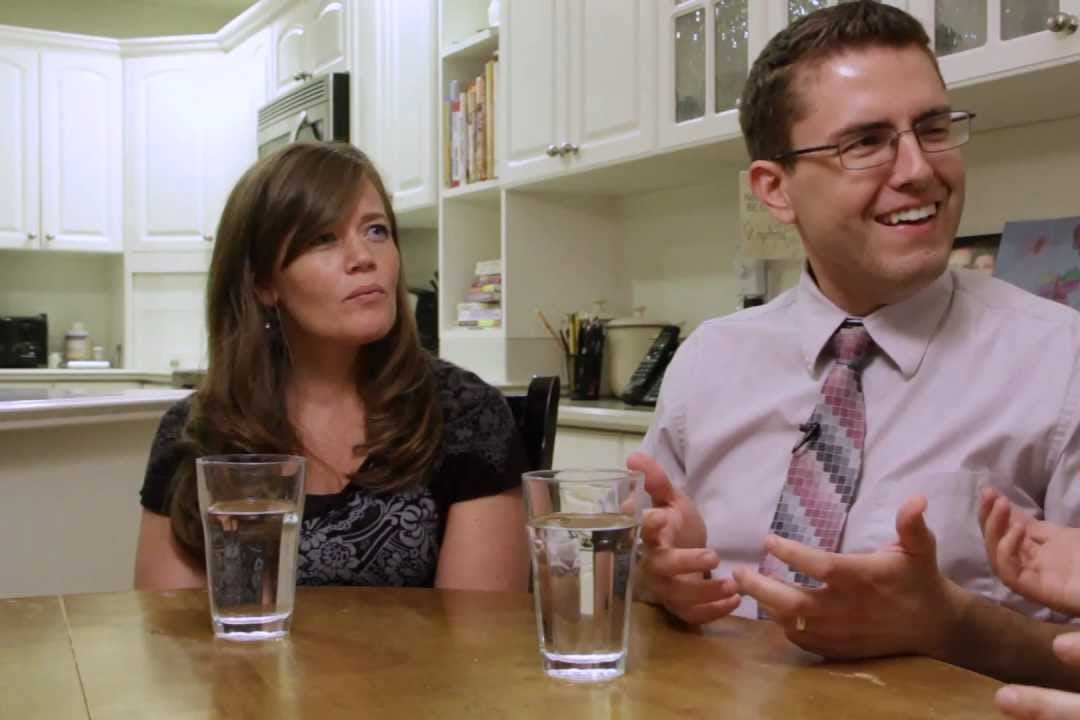On their 10th wedding anniversary in 2012, Josh and Lolly Weed were ready to make a big announcement: Josh was gay, and they had both entered into their marriage knowing it. Devout Mormons, the couple believed the church’s doctrine that marriage is between a man and a woman, and that “family is central to the Creator’s plan” for believers. Josh had come out to his parents at age 13, and to his friend Lolly a few years later, but the couple decided to start dating and later to marry, eyes wide open. The post went viral, and the couple appeared on Nightline, talking about their shared faith, their “great” sex life, and their love for their three daughters.
The Weeds recently made another big announcement on their blog: They’re divorcing. In a remarkable 11,000-word post, the couple confessed that the arrangement wasn’t working. “Our marriage was absolutely beautiful,” Josh wrote, “Yet it contained an undercurrent of pain that we were not able to see clearly or acknowledge for many years, which made continuing in it impossible.”
The post is raw and heartbreaking. Josh wrote that he had at times daydreamed about suicide, and that he had seen many LGBTQ friends struggle with the same impulses. He said that although he deeply loved his wife, he had been in denial about his romantic and sexual attraction to her. In her own section of the post, Lolly writes about the ways that the mismatch eroded her self-esteem over the years:
We told ourselves that our love was similar to that of an elderly couple after infatuation and physical attraction had died away and what remained was a tender bond of love. That was the framework we used to understand our relationship. Using that framework, I was willing to sacrifice that sexual component because Josh was worth it to me.
However, as the years went by, and the holes in our souls grew larger and larger, we realized that our relationship was not like an elderly couple because, although the elderly couple’s sexual relationship had dimmed, their romantic adoration for one another did not. … We realized the thing that so many people had tried to tell us: that we didn’t have romantic attachment. That romantic attachment was essential to a functioning marriage. And that it was something that we never had and, hauntingly, that we never would.
Some critics online have reacted to the Weeds’ revelation this week by wondering who could be surprised, in 2018, that a marriage between a gay man and a straight woman would be unsustainable. After all, there are countless closeted men (yes, mostly men) whose lives have ruptured spectacularly because of their failures within such marriages: the megachurch pastor accused of doing meth with a male prostitute; the conversion-therapy promoter caught traveling with a male escort; the senator arrested for lewd conduct in a men’s bathroom.
Then there are the couples more like Josh and Lolly Weed, who were open about at least one partner’s “struggles” with homosexuality, but tried to make their marriages work anyway, out of the belief that it’s what God wanted them to do. Many of them, too, have faltered. “Recovered” gay man John Paulk and his wife, who called herself a former lesbian, appeared on the cover of Newsweek in 1998 under the headline “Gay for Life?” Paulk later served chairman of Exodus International, a group that promoted “freedom from homosexuality through the power of Jesus Christ.” But Paulk was spotted in gay bars several times in the ensuing years, and in 2013 he announced they were divorcing.
Decades of such failures are one reason that conversion or “reparative” therapy is at last falling out of favor in mainstream Mormon and Christian communities. The practice has been discredited by major medical organizations, and repudiated by many of its prominent practitioners. (It absolutely still exists, but is increasingly relegated to smaller organizations and lower-profile counselors.) Exodus, the group John Paulk once led, issued an apology and announced it was shutting down after 37 years in 2013; the group’s president acknowledged he still experienced “ongoing same-sex attractions,” though he remains married to a woman. He told a reporter in 2015 that “99.9 percent of people I met through Exodus’ ministries had not experienced a change in orientation.”
Forced to concede that change is exceedingly rare, a new wave of thinkers has offered up a different proposition: That people experiencing “same-sex attraction” (SSA) can either remain celibate and cultivate rich friendships, or they can enter into honest “mixed-orientation” marriages.
The Weeds did everything right according to this strain of thinking. Josh never claimed to be straight. The couple eschewed the idea of “conversion” out of homosexuality. They say there has been no infidelity on either side, and that Josh is not in love with anyone else. They were relentlessly open, honest, and self-interrogating; they were and still are devoted to their family and their shared faith.
And still, it didn’t work. Indeed, a 2015 study of 1,600 LGBTQ Mormons and former Mormons found that marriages between “SSA” men and straight women were two to three times likelier to end in divorce than the typical Mormon marriage. The Weeds’ story should serve as a powerful call to end the practice of encouraging “mixed-orientation” marriages for good.
